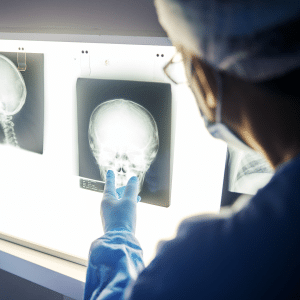Unveiling the Development of Obsessive-Compulsive Disorder
Maddison Henley PA-C

Obsessive-Compulsive Disorder (OCD) is a challenging mental condition affecting individuals across different walks of life. However, many often wonder what causes OCD? Though the path toward the answer isn’t a straight one, extensive research has identified a blend of influences from genetic aspects to environmental variables.
Decoding OCD
OCD is characterized by persistent unwanted thoughts (obsessions) and actions (compulsions). Commonly reported obsessions encompass fears of contamination, unintended harm, the need for symmetry, and intrusive taboo thoughts. To manage these obsessions, affected individuals might resort to behaviors like frequent hand cleansing, repetitive checking, or precise object placement. The expression of OCD can differ widely among individuals, yet it can profoundly influence daily routines and life satisfaction. Those with OCD may spend considerable time on these behaviors, aiming to mitigate the unease triggered by the obsessions. Such repetitive behaviors can dominate their day, often disrupting personal, social, and work-related activities.

Highlighting the Genetic Aspect
Studies have linked genetics with OCD’s development. Individuals with direct family members suffering from the disorder are more likely to develop it. Yet, genetics alone does not conclusively determine OCD’s existence, instead, they reveal a vulnerability or a heightened risk factor.
Considering Environmental Contributions

OCD can manifest in people of any age or gender. Yet, certain environmental factors and personal histories might heighten the vulnerability to this disorder. The hormonal fluctuations during and post-pregnancy, coupled with the demands of new motherhood, may serve as catalysts, particularly for those with an inherent genetic inclination towards OCD. Outside of pregnancy, various external factors significantly influence the emergence or worsening of symptoms. Childhood traumas, stressors such as job transitions or moving, and profound life changes like marital separations or losing a close one, can escalate the risk for those predisposed. Recognizing and balancing both genetic and environmental aspects is crucial in grasping and managing the nuances of OCD.
The Vital Role of the Brain
Neurological aspects too can contribute towards OCD. Neuroimaging research has suggested noticeable differences in brain structure and functions between individuals with OCD and those without it. Specifically, alterations in the connectivity and activity of the orbitofrontal cortex, anterior cingulate cortex, and basal ganglia have been observed. Moreover, imbalances in neurotransmitters, particularly serotonin, have been implicated in the pathophysiology of OCD. These neurotransmitter changes might influence the obsessive thoughts and compulsive behaviors characteristic of the disorder. While these findings hint at a neurological dimension of OCD, they are still topics of ongoing research, and a comprehensive understanding necessitates further investigation.

Navigating Through OCD’s Intricacies
Knowledge about OCD’s origins is not fully understood yet. Until then, tackling OCD involves symptom management and enhancement of the patient’s quality of life.
Management strategies include physical exercise, maintaining healthy sleep schedules, specific therapy, and oftentimes, medication. Remember that OCD’s presentation is unique in everyone; hence treatment should be personalized.
If you, or someone you know, is struggling with OCD symptoms, it’s crucial to seek professional assistance. Breaking the silence and stigma around OCD is the first step towards effectively dealing with the disorder. With collective effort, we can handle OCD better.
Responsibly edited by AI
Other Blog Posts in
Animo Sano Psychiatry is open for patients in North Carolina, Georgia and Tennessee. If you’d like to schedule an appointment, please contact us.
Get Access to Behavioral Health Care
Let’s take your first step towards. Press the button to get started. We’ll be back to you as soon as possible.ecovery, together.




